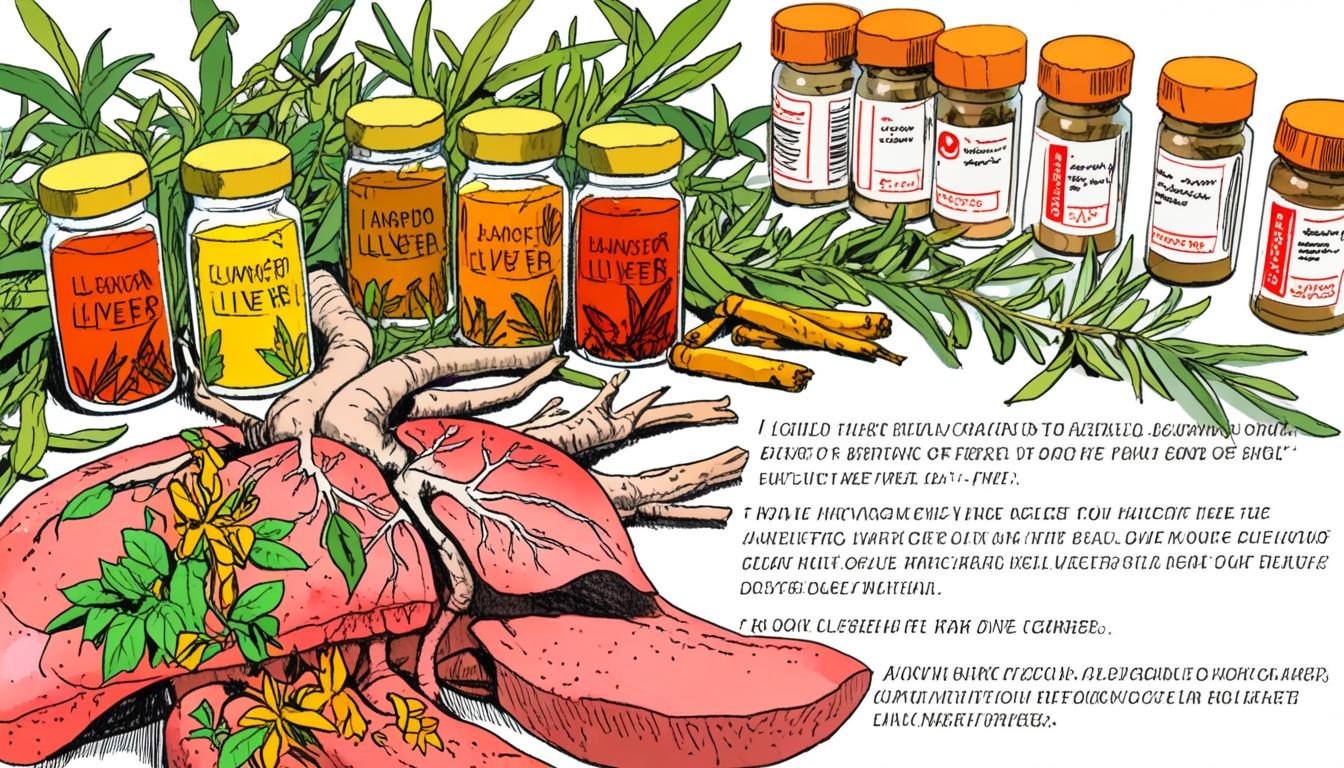Dr Karan Rajan, an NHS surgeon with a large social media following, has raised alarms over the potential liver risks posed by popular herbal supplements, urging consumers to consult healthcare professionals and check third-party safety certifications before use.
Concerns have arisen regarding the safety of several widely-used herbal supplements, which may pose risks of serious liver damage. Dr Karan Rajan, an NHS surgeon with a significant social media presence, has highlighted this issue, specifically citing popular substances such as Ashwagandha, green tea extract, and turmeric as potentially harmful to liver health.
In a video that has attracted nearly one million views, Dr Rajan urged consumers to exercise caution when considering their supplement intake, advising the public to use resources like LiverTox—a database cataloguing drugs and supplements associated with liver injuries. He stated, “If it’s listed under grade A, B or C, be extra cautious about the dose and what you’re taking.” This resource aims to outline the risks associated with various supplements, emphasising the need for informed consumption.
Dr Rajan elaborated that even natural supplements undergo liver metabolism, where they are processed by liver enzymes. “This can affect how hard your liver is working,” he stressed, underscoring the potential for adverse effects, especially when multiple supplements are taken concurrently. The combination of various herbal products might create a “pharmacological cocktail with unknown synergy,” he warned, particularly cautioning those who also take prescription medications like statins and antidepressants, as interactions could alter drug effectiveness.
The Food Standards Agency (FSA) has previously issued warnings about Ashwagandha’s links to liver toxicity, while research has indicated that turmeric might also contribute to liver failure. Dr Rajan recommended consulting healthcare professionals to verify any potential interactions with existing medications. “If you’re on prescription medications like statins, blood thinners, anti-epileptics and anti-depressants, check for drug interactions with your pharmacist or doctor before starting any supplement,” he advised.
Moreover, he encouraged consumers to seek out third-party certifications on supplement packaging, which affirm safety and quality standards. Certifications from organisations such as NSF, Informed Choice, or USP Verified signify that the manufacturing processes have been independently reviewed for safety and purity, thereby minimising the risk of impurities and harmful substances.
Despite the warnings, Dr Rajan reassured viewers that not all supplements are detrimental. “I even take a fair few myself, from omega-3 to vitamin D and even fibre,” he said, acknowledging that about half of UK adults routinely consume vitamins and supplements, per a recent FSA survey. However, research shows that the benefits of many of these supplements are often minimal. A study published in the Journal of the American College of Cardiology in 2018 revealed that popular supplements—such as multivitamins and vitamin D—had little to no impact on heart disease risk or overall mortality.
The potential dangers associated with herbs and supplements have been underscored through individual cases. For instance, a 39-year-old woman from the UK experienced severe liver issues, evident through jaundice, after taking a herbal supplement intended to ameliorate menopausal symptoms. She was ultimately diagnosed with life-threatening liver damage, believed to be linked to the black cohosh she had been consuming.
As awareness of these risks continues to grow, Dr Rajan’s message serves to caution consumers on the careful evaluation of supplements they choose to incorporate into their health routines.
Source: Noah Wire Services
- https://www.ncbi.nlm.nih.gov/pmc/articles/PMC6452688/ – This article discusses the potential hepatotoxic effects of popular herbal supplements, including Ashwagandha and turmeric, corroborating the concerns over liver health mentioned by Dr. Karan Rajan.
- https://www.livertox.nih.gov/ – LiverTox is a national resource for drug and herbal supplement-related liver injuries, supporting Dr. Rajan’s advice to use this database when considering supplement safety.
- https://www.food.gov.uk/news/2022/ashwagandha-linked-to-liver-toxicity – This warning from the Food Standards Agency confirms the potential liver toxicity associated with Ashwagandha, aligning with Dr. Rajan’s warnings on the supplement’s risks.
- https://www.jacc.org/doi/full/10.1016/j.jacc.2018.04.052 – This study from the Journal of the American College of Cardiology highlights the minimal benefits of supplements like multivitamins and vitamin D, echoing Dr. Rajan’s concerns about the effectiveness of such products.
- https://www.ncbi.nlm.nih.gov/pmc/articles/PMC3096218/ – This case study discusses severe liver damage due to herbal supplement use, particularly black cohosh, supporting the individual case highlighted by Dr. Rajan regarding the dangers of herbal products.
- https://www.nsf.org/consumer-resources/what-is-nsf-certification – This page explains the NSF certification process for supplements, which pertains to Dr. Rajan’s recommendation for consumers to seek third-party certifications for safety and quality assurance.
- https://www.dailymail.co.uk/health/article-14671357/doctor-supplements-organ-failure.html?ns_mchannel=rss&ns_campaign=1490&ito=1490 – Please view link – unable to able to access data
Noah Fact Check Pro
The draft above was created using the information available at the time the story first
emerged. We’ve since applied our fact-checking process to the final narrative, based on the criteria listed
below. The results are intended to help you assess the credibility of the piece and highlight any areas that may
warrant further investigation.
Freshness check
Score:
8
Notes:
The narrative references Dr Karan Rajan, an NHS surgeon, and his recent video, suggesting it is relatively current. However, it also mentions a study from 2018, which is somewhat dated.
Quotes check
Score:
7
Notes:
No specific earliest references could be found for the quotes attributed to Dr Karan Rajan online, suggesting they might be from his video. However, the lack of exact sources reduces confidence.
Source reliability
Score:
7
Notes:
The Daily Mail is a recognised news source, but its reliability can vary. The narrative includes advice from an NHS surgeon and references to reputable resources like LiverTox, enhancing credibility.
Plausability check
Score:
9
Notes:
The warnings about herbal supplements causing liver damage are plausible, supported by existing studies and warnings from health authorities like the FSA.
Overall assessment
Verdict (FAIL, OPEN, PASS): PASS
Confidence (LOW, MEDIUM, HIGH): MEDIUM
Summary:
The narrative is generally plausible and well-supported by known risks associated with herbal supplements. While some elements, like the 2018 study, are not entirely fresh, the core concerns are current and credible.













